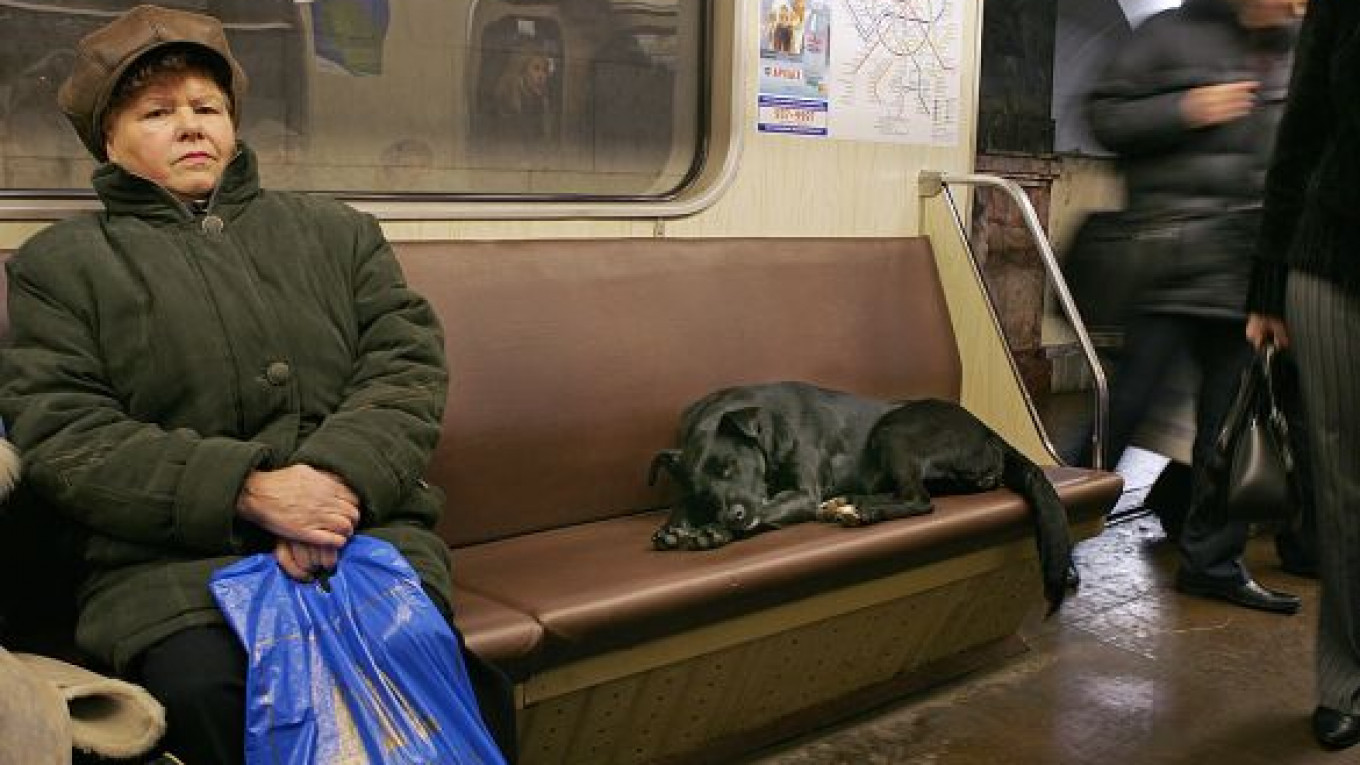It might sound like a great way to escape the mean streets of Moscow, hang out with buddies and get free food. But animal protection activists are aghast at a proposal to send the capital's stray dogs to an isolation facility outside the city.
City authorities on Tuesday will discuss the proposal to round up Moscow's estimated 26,000 stray dogs and move them to a camp in the Yaroslavl region about 250 kilometers to the northeast.
Prominent actors and musicians have petitioned City Hall to abandon the idea. Speaking at news conference on Monday, actor Yevgeny Mironov compared the planned facility to a "concentration camp."
Moscow's strays are famous for their street smarts, many of them learning to sleep in the city's metro stations and even ride on the trains.
But while some of the pooches are polite and tragicomically charming, many are intimidating and aggressive, roaming their neighborhoods in packs and attacking humans.
Police in the Kyrgyz capital, Bishkek, recently announced their intention to shoot 10,000 stray dogs this year. Moscow's plan would be less overtly grisly, but activists say it no less cruel.
Artyom Zverev, veterinarian for animal rights charity Bim, warned that the facility could become a breeding ground for disease. In order to ship the dogs out of the city's borders they have to be quarantined for one month, and the city has no facilities or staff to do that. One ill dog is enough to endanger the whole group, he said.
"If there is an outbreak of a disease, animals will be dying slowly and painfully," Zverev said.
He also cited examples of similar deportations in other cities where dogs from outlying regions moved into the city, filling in the empty ecological niche.
Deputy Mayor Viktor Biryukov met with two film actors last week and promised to review the deportation plan at Tuesday's meeting of the government, activists said, but they are still wary of promises.
"We've heard these promises before so we still have concerns that they will not follow through this time," said Natalya Yunitsyna, head of charity The Hope Bringers.
City Hall spent some 1.3 billion rubles ($45 million) on dog shelters, sterilization and other programs to deal with the city's stray population between 2008 and 2009, but critics say much of the money has gone unaccounted for.
With many stray dogs being sterilized and unable to reproduce, dog breeders have become the main source of new strays, animal activists said.
Dog breeding became a highly lucrative business in the past two decades with very little control over their activities, said Irina Novozhilova, president of the animal rights group Vita.
A Message from The Moscow Times:
Dear readers,
We are facing unprecedented challenges. Russia's Prosecutor General's Office has designated The Moscow Times as an "undesirable" organization, criminalizing our work and putting our staff at risk of prosecution. This follows our earlier unjust labeling as a "foreign agent."
These actions are direct attempts to silence independent journalism in Russia. The authorities claim our work "discredits the decisions of the Russian leadership." We see things differently: we strive to provide accurate, unbiased reporting on Russia.
We, the journalists of The Moscow Times, refuse to be silenced. But to continue our work, we need your help.
Your support, no matter how small, makes a world of difference. If you can, please support us monthly starting from just $2. It's quick to set up, and every contribution makes a significant impact.
By supporting The Moscow Times, you're defending open, independent journalism in the face of repression. Thank you for standing with us.
Remind me later.






